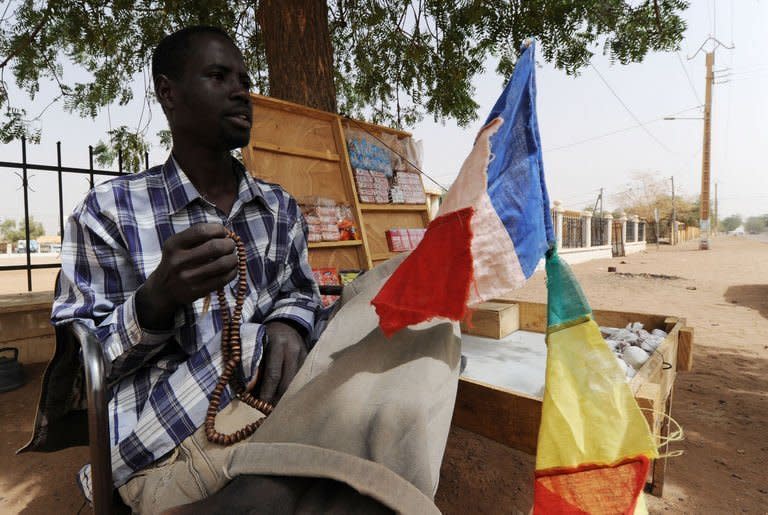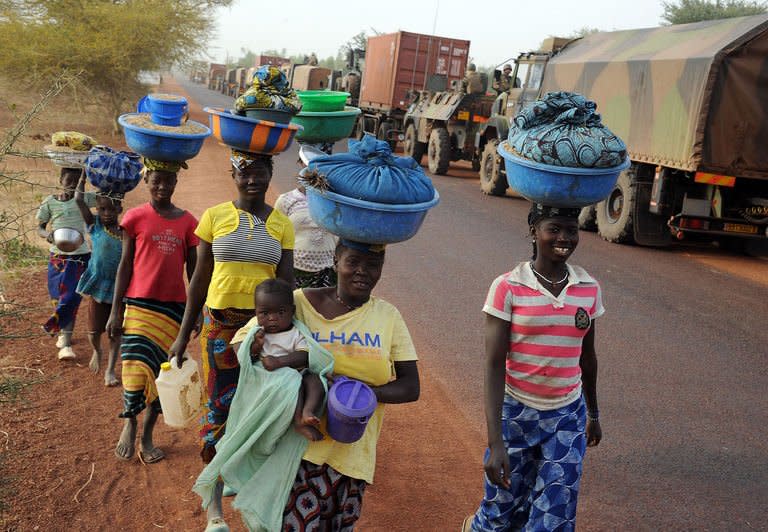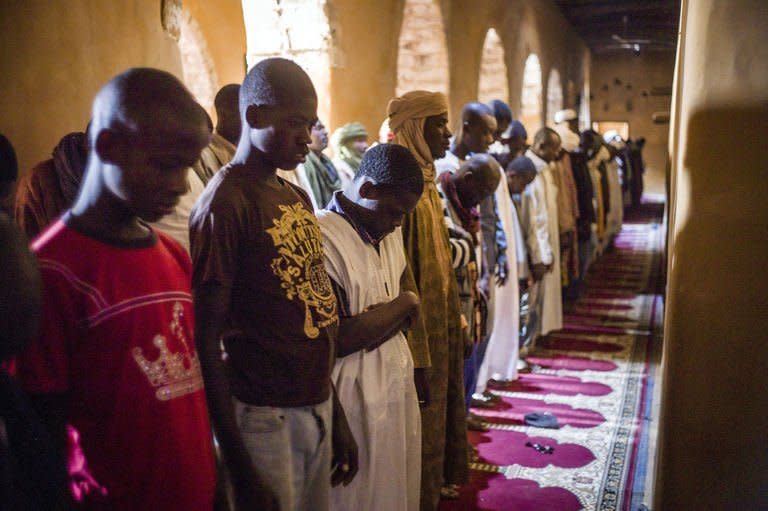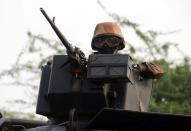Hollande to visit Mali as French troops eye last bastion
President Francois Hollande was set to visit Mali Saturday as French-led troops worked to secure the last Islamist stronghold in the north after a lightning offensive against the extremists. Hollande, whose surprise decision to intervene in Mali three weeks ago has won broad support at home, will travel to the fabled city of Timbuktu and hold a working lunch in the capital Bamako with Mali's interim president Dioncounda Traore, the Malian presidency said. "I am going to Mali to express to our soldiers all our support, encouragement and pride," said Hollande. "I'm also going to ensure that African forces come and join us as quickly as possible and to tell them we need them for this international force." France is keen to hand over its military operation to nearly 8,000 African troops slowly being deployed, which the United Nations is considering turning into a formal UN peacekeeping operation. But there are mounting warnings that Mali will need long-term help to address the crisis -- the latest from German Defence Minister Thomas de Maiziere as he opened a major security conference in Munich. "A military intervention is only the beginning of a long process to find a lasting solution to the conflict," he said. US Defense Secretary Leon Panetta said Friday that French forces had rolled back Islamist militants in Mali "much faster" than the United States had expected but now face the daunting task of building long-term security in the region. "They have made tremendous progress, I give them a lot of credit," Panetta told AFP in an interview at the Pentagon. "But the challenge now is to make sure that you can maintain that security and that you are not overstretched and that, ultimately, as you begin to pull back, that the other African nations are prepared to move in and fill the gap of providing security. The Malian presidency said Hollande would land in the central garrison town of Sevare early Saturday, then travel to Timbuktu to meet with troops and visit the 700-year-old mud mosque of Djingareyber and the Ahmed Baba library, where Islamists burned priceless ancient manuscripts before fleeing. The trip comes as troops are poised to secure the sandy northeastern outpost of Kidal, the rebels' last bastion. A first contingent of Chadian troops has now entered the town, a Malian security source said, and French soldiers are stationed at the airport, which they captured Wednesday. The French-led campaign, provoked by a southward rebel advance that sparked fears the entire country could become a terrorist haven, has claimed a rapid succession of victories in key Islamist strongholds. But the joy of citizens throwing off the yoke of brutal Islamist rule, under which they were denied music and television and threatened with whippings, amputations and execution, has been accompanied by a grim backlash against light-skinned citizens seen as supporters of the Al Qaeda-linked radicals. Rights groups have reported summary executions by both the Malian army and the Islamists, who capitalised on the chaos unleashed by a March coup to seize an area the size of Texas. Human Rights Watch said Islamists were implicated in the execution of at least seven Malian soldiers, slitting their throats or shooting them in the mouth. It also said Malian troops had shot at least 13 suspected Islamist supporters in Sevare and dumped them into wells, a report corroborated by other rights groups. The Malian army has denied any crimes by its forces. Amnesty International also called on the French army to launch an independent investigation into the deaths of five civilians killed in a helicopter attack on the town of Konna at the start of the campaign. The French army said the attack could not have been carried out by its helicopters. "There is nothing to indicate that French forces could be held responsible for that attack," spokesman Colonel Thierry Burkhard told AFP, insisting no French helicopters or planes had been active in Konna on January 11. Mali's military was humiliated at the hands of rebel groups in the north, whose members are mostly light-skinned Tuaregs and Arabs, before the French army swept to their aid. With fears of reprisal attacks high, many Arabs and Tuaregs have fled. At Friday prayers in Timbuktu, religious leaders at the mosque Hollande will visit called for tolerance. "We have always preached a tolerant Islam," said the mosque's muezzin Khalifa Cisse. The French-led campaign has met little resistance, with many of the Islamists believed to have slipped into the desert hills around Kidal. While largely supported by the French public, the intervention has not yet paid domestic political dividends for Hollande, failing to reverse a steep slide in his approval ratings as the economy struggles.











